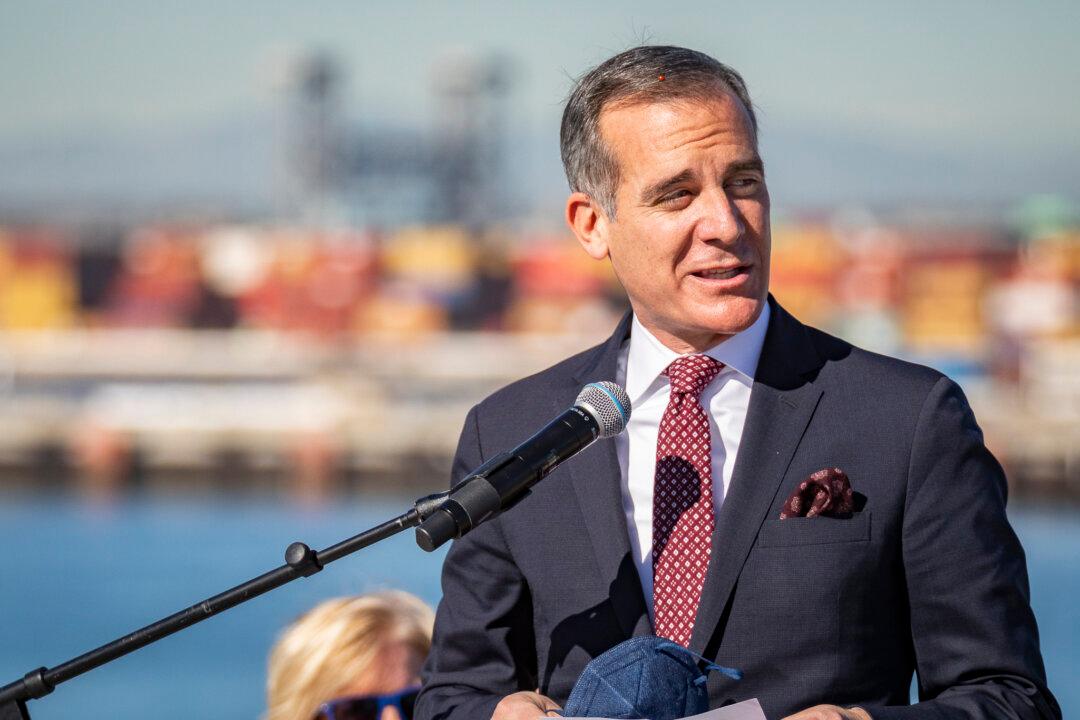LOS ANGELES—Mayor Eric Garcetti unveiled his proposed $11.8 billion budget on April 20, which he said is aimed at making Los Angeles cleaner and safer—including through an 8.5 percent increase to the Los Angeles Police Department’s (LAPD) budget.
The budget proposal, which will next go to the city council for revisions before being sent back to the mayor, represents an increase from the current year’s $11.2 billion budget.





